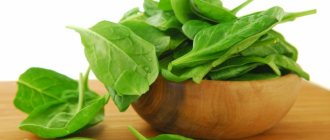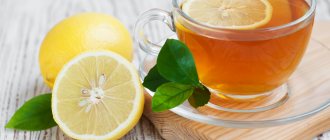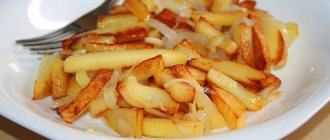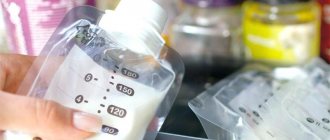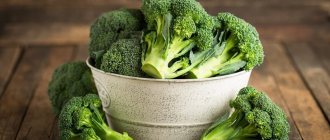Today, no one argues that mother’s milk is the best nutrition option and even medicine for a baby. Scientists believe that breast milk provides the baby's nutritional needs for six months from birth, which means there is no need for complementary feeding during this period.
With proper organization of baby food, a woman does not have to worry whether the child is eating or drinking enough, or whether it is correct.
The benefits and harms of berries during lactation
Berries contain large amounts of vitamins C and E, B vitamins and iron. They strengthen the immune system and promote the proper development of the baby, improve the condition of the blood, hair and nails, skin, and improve metabolism. Berries restore the body after childbirth and illness, help with constipation, and remove toxins and waste. They tone up, give vigor and strength, improve mood, help cope with depression and insomnia. At the same time, they have a pleasant taste and aroma.
Berries are healthy and allowed in fresh and processed forms. Fruits can be added to baked goods, yogurt and cottage cheese, various dishes and desserts. Fruit juice, compote or berry juice are ideal for a nursing mother. Drinks have a positive effect on milk production, increase immunity and tone the body.
If you prefer fresh juices, the drink should be diluted halfway with water, otherwise the baby may experience increased colic and digestive problems. The safest option for breastfeeding is berry compote. But use only natural and homemade drinks, not store-bought or store-bought drinks. How and what kind of compote to prepare for a nursing mother, see here.
Some types of berries can cause food allergies or irritate the intestines. To avoid this, nursing mothers need to follow the rules for introducing and consuming this product into the diet.
In what form can berries be eaten during breastfeeding?
Berries can be consumed fresh, in the form of jam or jelly
Berries can be prepared in different ways. In what form is it better to consume them during lactation? I would like to say that in any case, but this is not entirely true. For example, jam is a huge amount of sugar. If sweets do not cause increased gas formation in your baby, and you yourself are not afraid of gaining weight, please eat jam for your health. Just don't go overboard with the quantity.
Berries in the form of jelly are unlikely to harm you, just make sure that there are no harmful “chemicals” in the composition, it gets into the milk directly. Gelatin itself is even beneficial for nursing mothers; it helps strengthen bones and joints.
Berry compote is a great option during breastfeeding. In it, the berry juice is less concentrated and will have less impact on the lining of your stomach.
Fresh berries are just great if it's the season. But watch the quantity: a glass of berries is enough, if you are already sure that you and your child are not allergic to them, a larger quantity may be unnecessary.
How to properly include berries in your diet during breastfeeding
- You should eat berries only when they are in season and in moderation. Do not eat unripe or overripe fruits;
- Berries of yellow, white or green color begin to be introduced into the diet, as they are the least allergic. White currants, light grapes, and gooseberries are suitable;
- After three months of breastfeeding, you can introduce berries of bright and rich colors into the menu. The diet gradually includes red and black currants, cranberries, blackberries, strawberries, and raspberries. It is better to leave strawberries for last, as they are the most allergenic;
- For the first time, try two or three berries of a new variety and observe the baby’s reaction. If the newborn feels well, gradually increase the volume, but do not overfeed;
- If your child shows signs of a food allergy, remove the product from the diet and avoid reintroducing it for at least a month. If symptoms are severe and persist for a long time, consult a doctor. Do not self-medicate!;
- Do not include several new types of berries in your diet at once. Wait two to four days;
- Before use, carefully sort and wash the fruits. To eliminate harmful microbes, scald the product with boiling water.
How to tell if your child is allergic to berries
Check if your child is allergic to berries
Not all berries are equally safe in terms of allergies, so it is better to try them, starting with the most harmless ones. What kind of berries these are, you read above.
Now choose a berry and feel free to try it, but with the following conditions:
- A small amount of. Three or four strawberries, a handful of blueberries, a couple of teaspoons of strawberries or cherries on the first day of our experiment. If an allergy is discovered, such a quantity of berries is unlikely to cause much harm to the baby.
- Only one new product per day, or better yet, two days! We are detectives, so we need to understand what could affect the child’s well-being.
- If you're really scared, try dull berries. According to statistics, yellow cherries are less likely to cause allergies than red ones, and white currants are less likely to cause allergies than black ones.
To avoid forgetting anything, keep a diary. Write down when and how much of a certain food was eaten, and then what reaction followed from the child’s skin and stool. Typically, a reaction can be expected within 4–24 hours of ingestion. The baby’s behavior can also be an important indicator; usually it is the first symptom of an allergy; the baby begins to “suck”, experiences weakness and dissatisfaction already in the first hours after feeding milk with an allergenic product in its composition.
Table: example of keeping a food diary
| date | Time of use | Berry | Child's well-being | Reaction from the gastrointestinal tract | Skin reaction |
| 01.07.18 | 11–15 | Red Ribes | Cheerful, cheerful | The stool has not changed, creamy with small white patches | Normal skin |
| 02.07.18 | 13–10 | Raspberries | Slightly lethargic and irritable | A small amount of mucus in the stool | Cheeks slightly reddened in the evening |
If a reaction occurs, exclude the berry for 5–7 days; usually during this time the allergen is completely eliminated from the child’s body. And then try again to eat the suspected product in small quantities. This way you will definitely establish that it is he who is “to blame” for the allergy.
If you do not notice any dangerous symptoms, gradually increase the amount of product in your diet day by day. Just don’t take it to the point of absurdity: even the most harmless berry in large quantities can cause allergies not only in a healthy child, but also in an adult.
So you gradually introduce into your diet all seasonal berries, which are indispensable as a source of vitamins and minerals: blueberries, currants, cherries, sweet cherries, lingonberries, raspberries, strawberries, wild strawberries, blueberries and even grapes.
I, of course, did the opposite. Since I couldn’t have sweets at all during pregnancy, after giving birth, I immediately pounced on sweets and baked goods. It was completely unclear to me how to limit other foods, except that I did not eat fresh vegetables and almost did not eat fresh fruits, legumes and cabbage in any form. Our problem was colic, my son had no skin rashes. Therefore, I acted on the contrary: I did not introduce suspected foods against the background of a hypoallergenic diet, but removed them against the background of eating everything. As a result, my child did not feel better from any abstinence, but I myself felt much better without sweets (but, of course, I still “sinned” sometimes). And by three months the colic went away on its own, as is usually the case.
What berries should a nursing mother not eat?
When breastfeeding, you should not eat out-of-season berries, overripe or unripe fruits. In the first month, products of bright red and orange colors, dark saturated colors (black and blue) are prohibited.
Grapes and plums, sea buckthorn and sea buckthorn oil, and persimmon, which is also a berry, are not recommended for consumption. Such products are included in the diet after the second or third month.
In the first five to six months, it is not recommended to eat exotic fruits and berries during breastfeeding. Not only are they strong allergens, but they may contain various harmful chemical additives, which are used during long-term storage and transportation from exotic countries. Now let's look at when and what berries a nursing mother can eat.
Taking fruits during breastfeeding: Reviews from readers
Lada Serova, 23 years old St. Petersburg. I ate everything I could buy in the store. I only look with caution at brightly colored foods - they are obviously allergic. In general, I don’t see anything wrong with consuming fruits and vegetables during the breastfeeding period. Everything is good in moderation. If you want, why not try it, just check for allergies. If your child has one, then of course there is no need. Yana Milenko, 26 years old, Nizhny Novgorod. I eat whatever I want. In general, I don’t limit myself in anything. The child has no allergies, but doctors say it is useless to fight colic, you just need to get over it. In the maternity hospital they gave us various fruits, they even gave us oranges. And nothing. We eat whatever we want.
Marina Kucheryavenko, 40 years old Ufa . During my first pregnancy I ate whatever I wanted, but now the doctor has banned all raw fruits and berries. I can only eat an apple or a baked pear, and then only once a week. The baby’s tummy hurts, it’s not clear why. So I had to eliminate many different foods from my diet.
Lyudmila Nesmeyanova, 24 years old Penza . I eat a little bit of everything: watermelons and melons, peaches, nectarines, pears and even kiwi. If it’s a little bit, then it seems to me that it’s okay. My body and the baby’s body perceives everything. You just need to look at the reaction of your body and your child’s body.
Nadezhda Dobrykh, 32 years old Yekaterinburg. I eat everything. There was only one reaction to cherries, but I suspect that it was of some kind of poor quality. It was bad not only for me, but also for my husband. And doctors say that you can check this way: try it, wait 2 days. During this time, the reaction usually manifests itself. If there is no reaction, then you can eat a little. If you don’t overeat, then maybe nothing bad will happen.
Tatyana Vyguzova, 38 years old Tyumen . You can and should eat fruits while breastfeeding. Only 2 hours before feeding or immediately after feeding. To prevent gas, parsley juice is recommended. Although the greens smell bad of milk. And more proteins and vitamins. Where would we be without them?
What fruits can you eat while breastfeeding?
- Apples. By eating an apple, you will get a significant amount of fiber, as well as iron, iodine, calcium and magnesium. Their benefits include restoring strength and giving energy, plus they have a mild laxative effect. Breastfeeding experts recommend green varieties, but with careful consumption, you can include any apples in the menu (for more details, see the article: can a nursing mother eat apples in the first month?). To keep the little ones as safe as possible, it is recommended to peel them or cook them baked. This will only take a couple of minutes in the microwave and will eliminate any possible gas formation.
- Pears. They wonderfully replenish the resources of the mother’s body with folic acid, pectin, fiber, potassium and vitamins A, B9, and C. However, you need to be quite vigilant with them and eat them without the peel, since pears contribute to the occurrence of colic (we recommend reading: pears during breastfeeding ).
- Peaches. In addition to being a source of magnesium, peaches are also excellent antidepressants, and therefore their consumption improves mood, stabilizes the psyche, strengthens stress resistance and promotes the development of children's brains.
- Apricots. Containing many vitamins, minerals and beta-carotene, they help the immune system function effectively.
- Watermelons. They are known for their ability to increase lactation and improve metabolism due to their watery properties. However, it is better to avoid store-bought watermelons, since they are grown using chemical additives (more details in the article: can a mother eat watermelon while breastfeeding in the first month?).
- Plums. Due to their laxative effect, they are effective for constipation, but their abuse can lead to irritation of the intestinal mucosa and loose stool.
- Bananas. An eaten banana charges you with energy, supplies the body with potassium and promotes the production of the joy hormone - serotonin. Plus they have a high calorie content and minimal fat content.
- Berries: cherries, cherries, currants and gooseberries. They are a rich source of antioxidants and vitamins, particularly vitamin C, which play an important role in boosting immunity and preventing colds. Interestingly, these berries rarely cause allergies in a child.
Which berries are allowed and which are not allowed on breastfeeding
According to statistics, there are more allergenic berries and less allergenic ones
Which fruits are more dangerous and which are less dangerous for nursing mothers?
Let's start with the fact that there are forbidden berries: viburnum and blackberries. Especially the leaves and roots of these plants are not recommended for use by young mothers during breastfeeding, at least this is what the Association of Breastfeeding Consultants (AKEB) believes.
In addition, there are berries to which allergies are more common than others. That is, according to statistics, these berries are more dangerous!
Strawberries, wild strawberries and raspberries have a high allergenic potential (that is, the likelihood that they will be allergic to them).
Cranberries, lingonberries, cherries, blueberries and black currants have average allergenic potential.
And finally, low allergenic potential was assigned to white and red currants, as well as white and yellow cherries.
Of course, it is best to start trying berries with low, then medium, and only then high allergenic potential.
Otherwise, you will have to find out for yourself what exactly can harm you and the baby, and what is absolutely safe.
Contraindications
Due to the increased content of purines, you should not consume raspberries during an exacerbation of kidney diseases and gout. There are other cases when you should give up this delicious berry:
- increased acidity and stomach ulcers - in this case it is worth preparing raspberry juice, or, in extreme cases, a raspberry drink based on juice diluted with water;
- individual intolerance - in this case it is permissible to eat raspberry varieties with yellow berries;
- If you have constipation, it is also better to abstain from eating raspberries.
If any problems arise, it is best to consult your pediatrician. He will be able to determine exactly what caused the illness or allergic reaction.
With caution: which fruits are best avoided during breastfeeding
There is no need to completely give up all fruits - the baby should receive all the necessary vitamins and minerals through mother's milk. But it is necessary to “sort” for the first six months after birth so that the baby does not receive the lion’s share of allergens along with the mother’s diet. They threaten considerable trouble for the baby.
- Bright citrus fruits can change the taste of milk for the worse and the baby may refuse to breastfeed. Also, tangerines, oranges, grapefruits are strong allergens.
- Cherries, cherries and currants are useful, but can provoke an allergic reaction and rash in infants. Delay their inclusion in the diet until the child is 10-12 months old.
- Grapes can cause intestinal colic. If you decide to try a few grapes, make sure they are washed thoroughly. It is better if the grapes come from your garden plot.
How and when to introduce raspberries into complementary foods?
Let's talk about when to give raspberries to your child.
The first acquaintance can be as early as 8–9 months. It is better for children with allergies to try the berry after a year.
For more information about complementary feeding, the timing of introducing certain products into the baby’s diet, see the online course ABC of complementary feeding: safe introduction of complementary feeding to infants>>>
On a note! It is better to start your acquaintance with a light variety: white or yellow raspberries. If everything is fine, then you can try red varieties.
In the first half of the day, offer your child 1-3 raspberries, stop there for now to check the individual reaction.
After this, carefully monitor your skin and other symptoms. If there is no allergy, then next time give a few things and observe again.
If everything is fine, then slowly increase the portion per day to a small handful that fits in a child’s palm.
If an allergy occurs, contact your pediatrician and take a break from feeding berries for 2-4 weeks.
What to do if you have allergies
Allergy to berries is not a death sentence
If you do discover that your baby is allergic to a certain berry, do not be discouraged, because other berries may be safe for him. And in some cases, doctors do not even allow you to eliminate the allergen from your diet completely. There is a technique called alternating diets. It is described by the La Leche League (a public organization for searching and disseminating the most current information about breastfeeding) in the article “Allergies and the Infant Family.” You can use this method only under the supervision of your pediatrician, or better yet, an allergist!
The bottom line is that foods to which the child is allergic are consumed in small quantities every 3-7 days. This way, you can ensure that the product does not accumulate in the mother’s body; within a week, the allergen is usually completely removed from it and almost never reaches the child. Together with your doctor, you can carefully experiment and set the optimal frequency for you and your baby. But do not apply this principle yourself, the allergy can worsen and harm the baby!
There is another good news: the baby’s gastrointestinal tract is gradually maturing: at the age of about three months, the intestines begin to produce significantly more enzymes than before - which is why, by the way, colic in most children ends at this age. So at three months you can try the allergenic product again in a small amount and see the reaction. If it didn't work at three, try at six. Then at 12, 24 months (already as part of complementary feeding) and so on. It is quite possible that one or another berry will no longer cause allergies in the baby.
Didn't find your Organization? Add now!
2016-06-25 Congratulate the Child The advisability of using ketchup and mayonnaise in a child’s dietPrevious Quince for children up to one year and afterNext
Also read
About the benefits of chamomile tea for children
Contents1 What is it?2 Useful properties3 Instructions for use3.1 How to brew correctly?4 Age restrictions and...
Google AdvertisingLatest Posts
- What you need to know about traditional Russian dress 04/23/2019
- How to make even the most ordinary holiday unforgettable 04/18/2019
- How to make your child's birthday unforgettable? 01/13/2019
- Interactive Baby Theater 07/31/2018
- What to give children for the New Year 12/07/2017
- More than 12,000 sales in 2021 06/22/2017
Establishments in Russia
- Sushi and rolls
- Maternity hospitals in Russia
- Entertainment children's centers
- Music schools
- Children's hairdressers
- Kindergartens
- English courses for children
- Products for expectant mothers
- Pediatric dentistry
- Baby food products
- Sports clubs and sections in Russia
- Drawing lessons in Russian cities
- Children's furniture stores in Russia
- Playgrounds for children in Russia
- Swimming pools for children in Russia
- Libraries for children in Russia
- Camps for children in Russia
- Massage therapists for children in Russia
- Services of children's speech therapists in Russia
- Clinics for children in Russia
- Organization of excursions for children in Russia
- Child psychologists in Russia
- Ordering a cake for a children's party in Russia
- Decoration of children's parties in Russia
- Stores with pet supplies in Russia
Advertising Sitemap
The site may contain content for persons over 16. 2013 – 2021 © All rights reserved Children's Birthday. Product order form
After filling out the form, a manager will contact you and answer all questions.
* Your personal data will not be transferred to third parties
How to select and store raspberries?
The best option for your child would be berries from your own garden, but if this is not possible, then you need to know how to choose the right berries when purchasing.
When buying raspberries for small children, you need to pay attention to the quality of the berries. To do this, you must adhere to the following criteria:
- Be sure to smell the product, it should be fragrant.
- Try it, a ripe berry will be sweet, juicy with a slight sourness.
- The berries should be whole and brightly colored.
- You cannot buy a damaged product; it will be rotten and moldy.
- You should also not buy drained raspberries for your baby; they are no longer a fresh product.
On a note! Fresh raspberries can be stored in the refrigerator for no more than two days.
To do this, carefully place ripe whole berries on a plate in one or several layers, covering with a paper towel. Fruits need to be washed before eating or freezing.
You can freeze the fruits for the winter. Rinse them, then dry them on a paper towel, place them on a plate in a single layer and freeze. For freezing, you can place the fruits in small portions in a bag or container.
Berries can be stored in the freezer for one year. They cannot be re-frozen.
The jam is simmered over low heat for several hours. To preserve more nutrients, the berries can be ground with sugar in a 1:1 ratio or dried. Store grated raspberries and jam in the refrigerator, and dried berries in a tightly sealed container in the pantry.
Now you know whether you can have raspberries per year and how much. Follow these tips, and the aromatic treat will bring benefit and pleasure to your baby.
Exotic and native fruits
Many people like to eat mango, pineapple or avocado fruits, but along with citrus fruits, they pose a threat to the health of a breastfed newborn, so the question of what fruits a nursing woman can eat is very important.
Bananas are a hypoallergenic product that can be consumed by mothers during pregnancy (more details in the article: can a nursing mother eat bananas: their benefits and harms)
Of course, for those countries where such unusual fruits are common, they are not considered dangerous. For example, tangerines and oranges in Spain are treated the same as apples in Russia. They are the first on the menu for nursing mothers and when introducing complementary foods. There is an exception to the rule - bananas. They are hypoallergenic products and are very popular in our area.
Pomegranate is not only very tasty, but also a healthy fruit during lactation (we recommend reading: can a mother eat pomegranate while breastfeeding?)
Raspberry dishes for kids
And at the end of the article, we offer two simple recipes for raspberry dishes that can be given to kids.
Frappe with raspberries
For 4 servings you will need 200 g of ice cream, preferably regular, white ice cream. You will also need 60 ml of raspberry syrup, 2 tbsp. milk and 400 g of fresh raspberries. Place all ingredients except the berries in an enamel or plastic container and beat using a blender or mixer. Place the raspberries in four bowls or transparent cups, then pour the mixture over them. You can decorate with raspberry leaves or special accessories. Attention! The dessert can be offered to children aged two years and older.
When should you start giving raspberries to babies?
Before you start giving your child raspberries, consult your pediatrician.
When asked by many parents, at what age can a child be given berries, there is no consensus among experts. Most medical experts argue that such berries can be gradually introduced into the diet of children after they reach one year of age. The final decision still remains with the parents, since some begin to add raspberries to their diet before they are even a year old. There is an opinion that you can start introducing berries into your diet as early as eight months.
An important point is that you must follow the basic principles of introducing new berries to your child’s menu.
- First, you need to offer the child one ripe fruit.
- If, after a day, no allergic reaction has been detected, then you can give the child 2 berries.
- Gradually increasing the number of fruits, you should approach the daily norm - one handful.
- If an allergy nevertheless appears, then you need to postpone adding berries to your diet for a couple of months.
How does a nursing mother's menu affect breast milk?
When I asked our local nurse, a kind woman, for nutritional recommendations, she gave me two pieces of paper with pictures about cross-allergies. Honestly: I still don’t fully understand how it works. And then the bustle of the first weeks and, most importantly, prolactin did not give me the slightest chance to understand this issue using pictures. My beloved Internet helpfully provided a bunch of information that was full of opposite recommendations, and if I had excluded from my diet all the foods that were recommended to be excluded, I would have eaten only boiled water. I was smart enough not to do this, but simply monitor the baby’s condition depending on what he ate.
Nutrition for a nursing mother is a complex issue, because the recommendations are not only varied, but also often contradict each other. What, for example, can we say about dairy products, which pediatricians of our mothers’ generation literally stuffed nursing women with, and now cow’s milk protein is considered almost the main allergen for children and adults. The grandmothers of our children widen their eyes and are surprised, but when it comes to berries, they are absolutely sure: it’s impossible. It doesn’t matter that it’s summer, natural strawberries, strawberries, cherries, cherries, blueberries and currants are ripe, that a young mother’s mouth is watering at the thought of such deliciousness, and even that the berries contain many useful vitamins and microelements. The terrible word “allergy” should discourage us from eating berries for a couple of years!
But is this really so? What does modern medical science say about berries in the diet of a nursing mother?
A nursing mother needs to eat a nutritious and varied diet, choosing foods that are safe for the baby.
Let's first figure out how the food eaten by the mother affects the composition of breast milk. Many people mistakenly believe that if we eat or drink something, then after some time the substances from these products will enter the milk and remain there until the baby eats it or the mother expresses it. This is wrong. The principle of diffusion applies here: what is in the blood is also in the milk. If some substance has already been washed out of the blood and does not continue to come from the small intestine, then it is no longer in the milk either.
By the way, there is a “loophole” for mothers who dream of drinking half a glass of dry red wine: you can, if by the next feeding you are already sober as a glass.
The second feature in this regard concerns the amount of the substance that gets into the milk: usually this is a very small percentage, so if you, for example, drink a cup of coffee in the morning, the caffeine will enter the baby’s body in such an amount that cannot in any way affect his nervous system .
Well, it turns out that you can still have berries?
How to treat with raspberries
Everyone, even children, knows how beneficial raspberries are for colds. But it is also successfully used to treat many other ailments: radiculitis, arthritis, neuralgia and others. Raspberries are also great for children with reduced appetite.
The diaphoretic effect is ensured by the large amount of salicylic acid contained in raspberries. And most importantly, without the side effects typical of pharmaceutical drugs. Due to profuse sweating, the body's thermoregulation is stabilized and body temperature decreases. Raspberries are also indicated in the following cases:
- as a hemostatic agent;
- in case of disorders of the gastrointestinal tract;
- low blood pressure;
- anemia;
- as a general tonic.
It is noteworthy that not only berries are beneficial, but also tea made from raspberry shoots and leaves. And the berries help restore normal intestinal activity. If a child has diarrhea and there is no necessary medicine in the medicine cabinet, then you can offer him an infusion of raspberry leaves.
Does your baby have a headache? Give a raspberry and the pain will disappear - this is an excellent alternative to aspirin. And thanks to the copper it contains, this useful gift of nature will protect you from depression. In addition, raspberries have powerful antibacterial properties and are effective in combating fungus, mold and pathogenic flora.
Raspberry composition
Raspberries contain many beneficial substances, including citric and salicylic acids, which have a pronounced anti-inflammatory effect. It also contains pectins, tannins, B vitamins, ascorbic and folic acids, beta-sitosterol and others. There are also minerals, including iron, which will help restore hemoglobin, calcium - so important for the full development of the skeletal system, zinc, copper and many other substances that bring great benefits to the body.
We are accustomed to thinking that wild raspberries contain more useful substances, but, for example, they contain less salicylic acid than garden raspberries, so for the treatment of colds it is better to take cultivated berries. They are also valued for the coumarins they contain, which are useful for blood clotting disorders.
Sources
- https://vskormi.ru/mama/kakie-yagody-mozhno-kormyaschej-mame/
- https://baby-bob.ru/kakie-frukty-i-yagody-mozhno-est-kormyaschey-mame-novorozhdennogo-spisok-razreshennyh-produktov-pri-grudnom-vskarmlivanii/
- https://onwomen.ru/malina-dlya-detej.html
- https://uroki4mam.ru/s-kakogo-vozrasta-mozhno-rebenku-malinu
- https://pozdravrebenka.ru/detskoe-pitanie/malina-detyam.html
